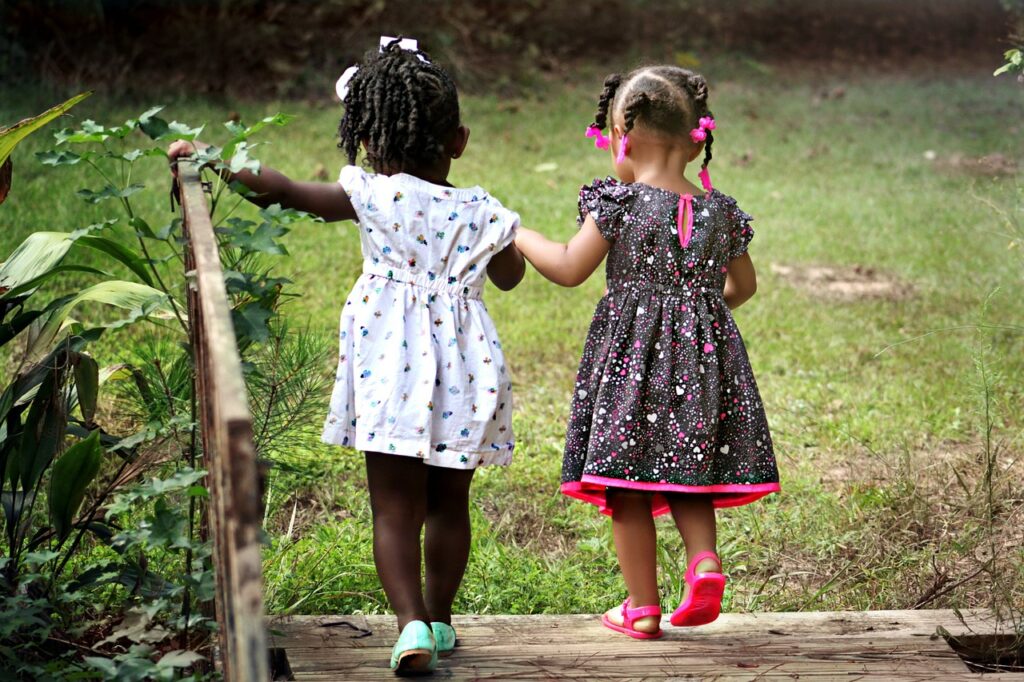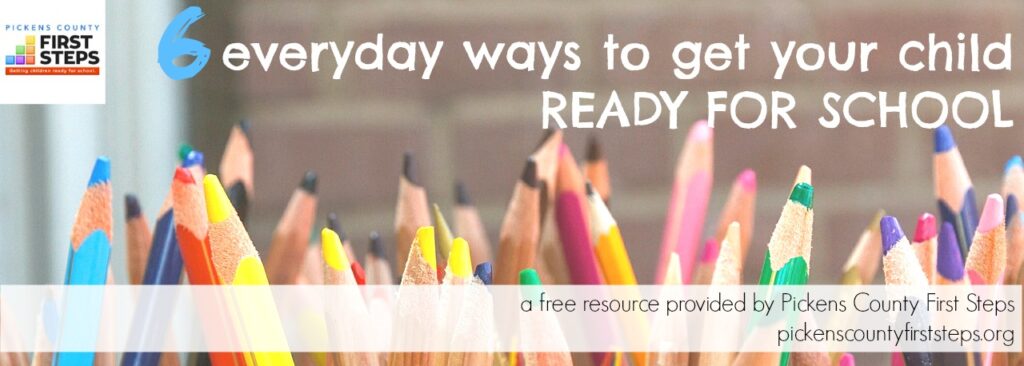If you’re a preschool teacher, childcare worker, volunteer, Sunday school teacher, parent, grandparent, or caregiver for young children — this post is for you.
Spend any time with children, even those within the same family, and you’ll soon learn that they are like snowflakes; no two are alike! Some are naturally compliant while others naturally push the boundaries. Some are quiet and attentive while others never have an unspoken thought.
It can be overwhelming to guide different personalities all at once and to know how to work with challenging children in a classroom setting or within the family.
Before we go any further, it’s important to establish what we KNOW about all young children.
- They are ACTIVE.
- They desired to be HEARD. {And often have lots to say!}
- They are naturally INQUISITIVE.
- They are always LEARNING about their environment and caregivers. This is what we call “social competence.”
While these natural qualities can be challenging, we don’t want to quash any of these characteristics about children! They all serve a purpose.
Social competence is a huge part of a young child’s life. It’s a process learned over time. Children will try and fail and hopefully get back up. This is how we all learn.
Consider how many times a day you, as an adult, interact with others. You are socially competent and you’ve learned this over a lifetime from teachers, parents, and others. You’ve learned from mistakes and you’ve learned from positive affirmation.
As caregivers, we have a wonderful {though challenging} responsibility to help young children navigate this process.
So how can we guide them in a way that nurtures their spirit and directs them in positive and consistent ways?
Every time a child needs our guidance, we have a decision to make: “How can I best help this child in this situation?” There is no one-size-fits-all strategy for every child in every situation.
With this in mind, instead of giving you “7 ways to discipline children,” we offer “7 questions to ask BEFORE you guide and discipline children.”

1. Am I focusing on telling the child what NOT to do or am I helping the child learn what TO do?
When children hear negative commands barked at them all day long, they eventually they become desensitized and / or beaten down on the inside.
Instead of “Michael! Don’t talk without raising your hand,” try “Michael, can you remember what to do if you have something to say?”
This puts the responsibility on the child to stop, think, and demonstrate what they’ve learned.
2. What do I think is causing the behavior?
It’s important to try and identify the root issue {fear, frustration, anger, exhaustion, confusion} before you develop a strategy.
3. Is there anything I am doing or NOT doing that may be contributing to the child’s behavior?
Consider that you may not have clearly communicated expectations or been consistent. This won’t always be the case but it is a factor to consider.
4. Is this strategy appropriate for this individual child? Did I consider his personality, strengths / weaknesses, and cultural / familial experiences?
You may not always have all the background knowledge you need. Getting to know a child takes time. But it’s important to use the knowledge and insight you do have before you move forward with guidance and discipline.
5. Will this strategy demonstrate respect to this child?

Children have complex emotions and their sense of self is very much in formation. If we want them to grow up as individuals who treat others and themselves with dignity and respect, it’s crucial that we help nurture a foundation of dignity and respect.
Challenging children can push our buttons as caregivers. Just because we’re grown-ups doesn’t mean we’ve perfected the art of self-control, especially if we’re exhausted and / or it’s a particularly trying situation.
But it’s vitally important that we never embarrass, humiliate, or shame a child. And if you have done this in the past, apologize to the child for the way you’ve made them feel and resolve to guide him or her differently in the future. It’s never too late to begin again! {Plus, all children need to see adults who model humility. What an excellent lesson this can be.}
Consider the times you’ve felt humiliated or shamed, whether as a child or as an adult. Putting yourself in the child’s place can be an effective way to pause and take a deep breath before redirecting the child in a more fruitful way.
6. What will the child learn from this strategy? Does it help him / her learn what TO do, rather than what NOT to do?
Every strategy to guide and discipline holds within itself a teaching opportunity. Punishment is often just a consequence but positive correction reinforces appropriate behaviors and strategies that the child can apply in the future.
7. The strategy I’ve tried before didn’t work. Should I try it again or should I try something different next time?
Whether you’re a parent or a teacher, you know that trial and error is simply part of life when you’re working with young children. While consistency is important, it’s okay to try different methods until you find what works for that particular child. The more you really get to know and understand the child, the better you’ll become at finding strategies that work!
We’ll continue to serve parents, teachers, and caregivers by offering posts that provide everyday ways to nurture young children.
If that sounds like something you need, subscribe to our blog! You’ll receive practical tips and resources no more than once a week. Simply enter your e-mail address in the blue box on the right {if you’re reading on a computer} or at the bottom of the page {if you’re reading on a mobile device.}
///
Get your FREE Readiness Tool!
Connect with us in the comments section or through our communities on Facebook and Twitter. Pickens County First Steps is also on Pinterest.
Want to know how YOU can help promote great childhoods in your community? It’s easy. SHARE our posts with your friends! Use the social media buttons at the bottom of this post.
By Marian Vischer, Communications Director


